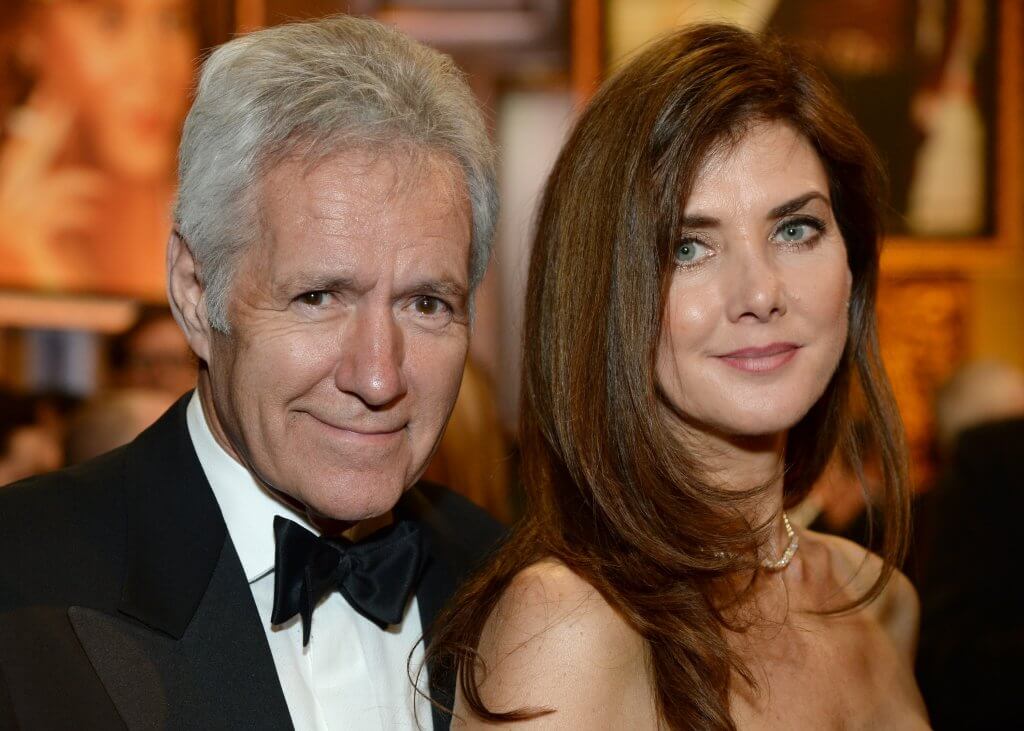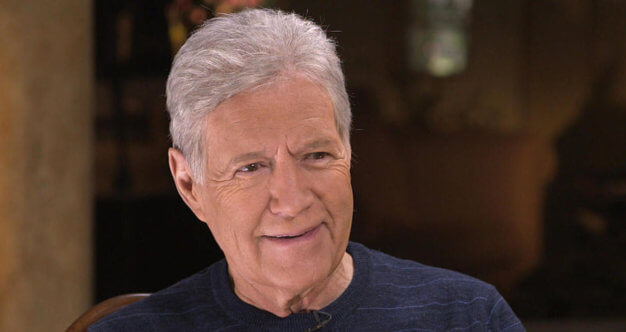Iconic “Jeopardy” host Alex Trebek, 78, has an optimistic new message for his fellow travelers on a pancreatic cancer journey: “Be Positive”.
And Trebek is now embracing his self-proclaimed role as the chief spokesperson for pancreatic survivors, which he says he’s attained due to his longterm fame and visibility as the America’s most beloved game show host.
Read More
Jeopardy! show host Alex Trebek, who was diagnosed with stage 4 pancreatic cancer in early March, with his wife Jean Trebek, 54
Trebek’s remarkable show of optimism was expressed in a new excerpt from his emotional “People” magazine interview. “People” revealed earlier this week that Trebek told them the surprisingly good news that his tumors are shrinking rapidly due to chemotherapy, and that his treatment overall seems to be going well.
He also said that he's going to have to go through a few more rounds of chemotherapy, but that he's excited about the progress he's made so far, and that there's hope he'll enter into a full remission. “It's kind of mind-boggling,” Trebek said. “The doctors said they hadn't seen this kind of positive result in their memory…some of the tumors have already shrunk by more than 50 percent.”
Trebek is right that he is seeing an extremely positive results considering his grim diagnosis of Stage 4 pancreatic cancer, since the greatest difficulty with pancreatic cancer is the solid tumors. "It is the solid tumor [pancreatic] cancer that has the worst prognosis. It is right now the third leading cause of cancer death, soon to be the second leading cause of cancer death in the United States," Dr. Allyson Ocean, Medical Oncologist at Weill Cornell Medical Center, told SurvivorNet in an interview prior to the first announcement of Trebek's diagnosis. “Mortality is rising because it is caught so late and we don't have enough effective medications against the cancer.”
And what's called a "stroma" makes it difficult for doctors to get at the tumor itself. "The cancer cells are surrounded by what is called a stroma, and the stroma serves as a barrier for medications to get in to the cancer to kill it," says Dr. Ocean. Stroma is tissue that surrounds the cancer tumor.
And that usually includes chemotherapy. "So chemotherapies have a hard time getting in, radiation has a hard time penetrating. Think of pancreatic cancer as an oatmeal raisin cookie and the raisins are actually the cancer cells, and the cookie part is actually all the stroma around it. And imagine having to navigate through all that stroma for a treatment to be able to get into a cell to kill it. So that's why the treatments just really aren't good enough to penetrate the cancer. But we're improving, we're getting better treatments."
Trebek gave a speech at the recent PurpleStride march to end pancreatic cancer in Los Angeles, and there he met with fellow patients and survivors who, he says, gave him hope. “There were over 50 pancreatic cancer survivors there, people who had survived 22 years in one case,” he says. “The survival rate 20 years ago was 4 percent. Now it's up to 9 percent. We're making progress, so let's be positive!”
He also talked in the interview about the desperate need for more research and funding for pancreatic cancer.
Learn more about SurvivorNet's rigorous medical review process.


